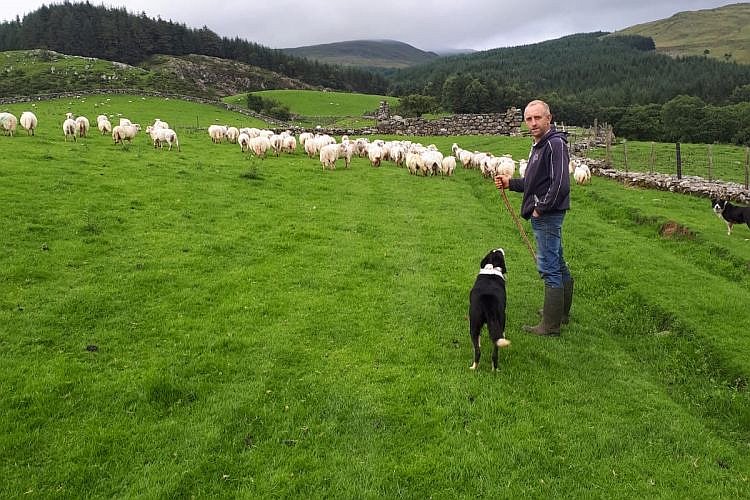
Vets are encouraging sheep farmers to conduct body condition assessments to maximise the productivity of their flocks and reduce potential health problems.
Farmers are being told to conduct body condition score (BCS) assessments - a management tool that evaluates the body reserves of adult sheep.
Assessment are conducted by a simple manual check of the animal to assess the amount of fat cover and muscle mass.
BCS allows farmers to adjust the flock’s nutrition to maximise productivity and reduce health and welfare problems that are associated with lean or overfat body condition.
Other benefits can include higher lambing and rearing percentages and reduced metabolic disorders.
Through the Stoc+ animal health planning project, Hybu Cig Cymru – Meat Promotion Wales (HCC) is encouraging farmers to conduct BCS assessments.
Emlyn Roberts of Esgairgawr farm in Gwynedd, north-west Wales, believes that BCS has been a 'great asset' on his farm, which consists of 800 Welsh Mountain ewes and Welsh Black cattle.
He said BCS was a 'vital tool' for the ewes to thrive and perform on the mountain: "It’s crucial to get the ewes in the right condition pre-tupping and pre-lambing.
"Combined with recording the performance, we have to make sure the ewes are in optimum condition to maximise production.”
Claire Jones of Dolgellau Vets, who is one of the Stoc+ vet ambassadors, added that BCS at weaning or at the 'very latest eight weeks' before tupping was 'vital'.
"By assessing score at this time, there is an opportunity to adjust the management of individual ewes if score is too low or too high," she said.
"It takes approximately eight weeks to increase one condition score in a typical situation, so monitoring the flock regularly is beneficial.
“BCS assessment is particularly useful on hill farms where the physical conditions imposed by the changeable weather and poorer grazing impose significantly greater stresses than in the low land situation, but is beneficial for all flocks.”
